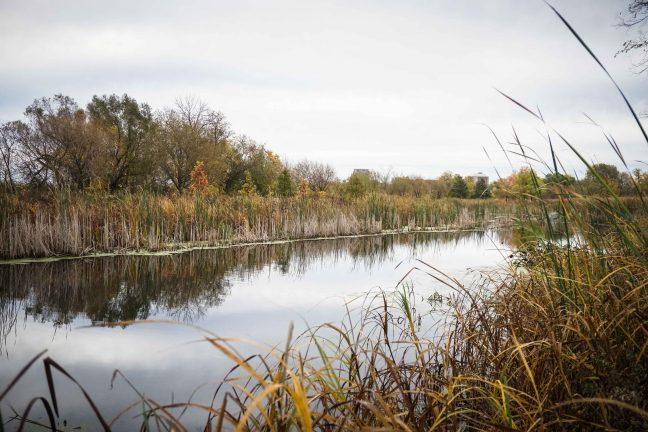Some of my earliest memories involving the outdoors are from my family’s weekend camping trips or hiking excursions at Devil’s Lake, a state park outside of Baraboo, Wisconsin some 45 minutes from Madison. These early memories — and the past 22 years of cherishing and making more memories outside — have instilled love and a sense of responsibility for the natural places across Wisconsin.
Unfortunately, though the long-term effects and consequences of climate changes have a direct impact on these beautiful lands that thousands of Wisconsinites and tourists benefit from every year. A 2018 study found that national parks and large wild areas across the country will bear the brunt of the negative effects of climate change, posing not only a threat to the future iteration of tourism, but also the integrity of their natural beauty.
While we may not have any national parks in Wisconsin, the consequences of climate change will damage the state’s parks too. The DNR has released substantial publications warning of the harmful effects of rising and drying temperatures on ecosystems across the state.
I have written before about current political initiatives being brought forward at the national level, such as the New Green Deal. But federal policies and bills face the problem of being struck down by science deniers and Republicans in Congress, a coalition which increasingly is less of a Venn diagram and more of a circle.
In June 2017, President Donald Trump announced that he would be pulling the U.S. out of the 2015 Paris Climate Agreement, a historic agreement amongst countries of the world to help mitigate the effects of climate change. While the U.S. is technically bound to the agreement until 2020, Trump’s rhetoric proves that while he sits in the Oval Office, it will be hard to pass expansive climate protections and initiatives.
Luckily, states have been stepping up and are reaffirming their own support of the Paris Climate Agreement by joining the U.S. Climate Alliance, a coalition of states that agree to three things:
- Implement policies that advance the goals of the Paris Agreement, aiming to reduce greenhouse gas emissions by at least 26-28 percent below 2005 levels by 2025.
- Track and report progress to the global community in appropriate settings, including when the world convenes to take stock of the Paris Agreement.
- Accelerate new and existing policies to reduce carbon pollution and promote clean energy deployment at the state and federal level.
So far, 21 States have signed on, including, most recently, Wisconsin. One of Gov. Tony Evers’ main objectives, according to a written statement from the Governor, is to believe and act on the overwhelming science consensus, as well as to pursue renewable energy sources for Wisconsin.
Essentially, the goal of the Paris Agreement is to lower levels of greenhouse gas emissions. This means that we are simply trying to slow down the effects of climate change, since stopping it appears to be out of the question.
And while the strongly Republican state legislature of Wisconsin may be in the position to block any legislative measures, Evers’ commitment to make change is a sign that the government is again fighting for climate protections.
The connection between renewable energy and state parks may not seem absolutely apparent, but supporting one helps the other. By joining the agreement, Evers is showing that Wisconsin is once again a place that is on the side of science.
What this means is that programs, unilateral decisions and hopefully bipartisan bills could follow. If Evers shows that he is standing up for wildlife in Wisconsin, momentum will follow. Evers should not only fight to pursue an agenda that not only reduces greenhouse gas emissions, but also work toward an all-encompassing green agenda which aims to protect the well-being of all parks across the state.
Joining the Climate Alliance is a marvelous first step — a step that will hopefully be followed by many more to come, in the interest of protecting the people, the tourism and the beauty of Wisconsin.
Evers should be applauded for joining the 20 other governors in coming forward and taking a principled stance on the side of climate change. And hopefully, the dominoes will continue to fall and he will continue to enact change that will help mitigate climate change and protect wild spaces.
Adam Ramer (aramer2@wisc.edu) is a senior majoring in political science and history.


